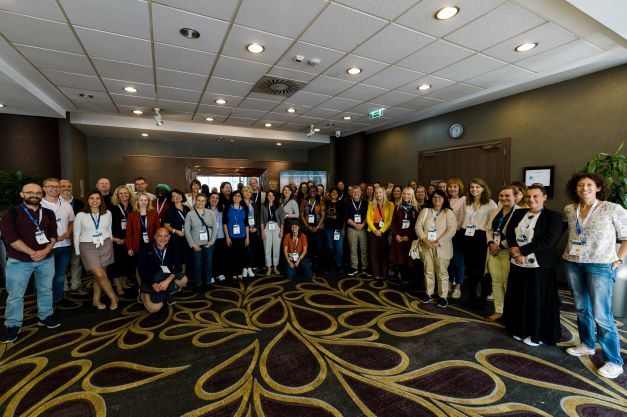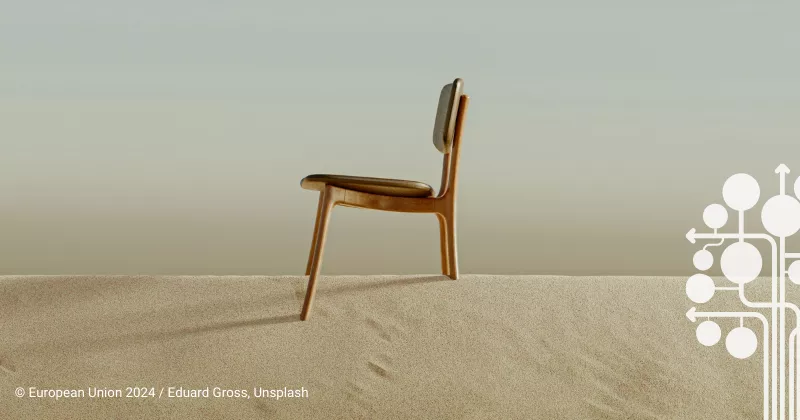European adult educators planned support projects for refugees

Acquaintance with the successful experience of adult education organizations in Poland and other European countries in working with refugees, establishment of useful professional connections due to joint projects – this was the agenda of the international cooperation activity seminar of Erasmus+ program "Your actions matter!" How to help refugees in the implementation of adult education projects?" held in Warsaw, Poland on the 13th-16th of September.
The seminar was organized by Polish National Agency of the Erasmus+ program. The project was financed by European Commission, the expenses of the visit were covered by Education Exchanges Support Foundation. Virginija Švedienė, Coordinator of Adult Education Activities of Panevėžys County Gabrielė Petkevičaitė-Bitė Public Library and Inga Besusparienė, Head of the Resource Formation and Innovation Department of Ignalina District Municipal Public Library participated in the international event.
The purpose of the seminar was to find partners for adult education projects of the "Erasmus+" program, focused on supporting refugees through non-professional education, networking, sharing good practices, discussing ideas, and preparing new projects.
On the first evening of the event, the participants got to know each other, introduced their countries and organizations.
The second day started with the greeting of Dawid Solak, Deputy Director of the Foundation for the Development of the Polish Education System. Specialists in the field of adult education of the Polish national "Erasmus+" program reminded of the goals of the program, the possibilities of KA1 mobility projects and KA2 strategic partnerships. Polish colleagues – adult educators – shared some useful advice and their successful experience of working with refugees.
On the second and third days, the participants of the seminar discussed the priorities of the Erasmus+ program reflected in the projects – inclusion and diversity, digitalization, environmental protection and sustainability, active participation. Solutions were sought, how the projects could serve the participation of refugees, bringing together intercultural communities, helping educators to acquire the necessary competencies. The main steps of the project were foreseen - goals, innovations, relevance, roles and responsibilities, activities and budget, desired changes and benefits.
The organizers of the event offered an interesting program – after the working sessions, the teams went on a treasure hunt in the center of Warsaw – they had to find certain objects and take creative photos nearby. The task allowed them to get to know not only each other better, but also the city.
On the fourth day, the teams presented project ideas, adult education specialists of the Polish national Erasmus+ program gave some advice.
The Poles prepared an excellent program of the event, in which there was enough time for everything – productive working sessions, sightseeing tours of the city, and friendly dinners.
Project applications are planned to be submitted to national agencies in October, 2022 (small-scale partnerships) and in March, 2023 (large-scale partnerships).
This article is the information of Virginia Švedienė, National Agency and European Commission are not responsible for its content.
Photo of the organizers of the seminar.
Prepared by Virginija Švedienė.
Coordinator of adult education activities
Panevėžys County Gabrielė Petkevičaitė-Bitė Public Library






Bardzo jestem ciekaw efektów…
Bardzo jestem ciekaw efektów tego spotkania, pomysłów na konkretne projekty. Edukacja dorosłych uchodźców to wielkie wyzwanie. Przymusowe przeniesienie całego życia w nowe miejsce często wiąże się nie tylko z koniecznością znalezienia pracy i przeszkolenia w często nowym zawodzie. To przede wszystkim umiejętność zaadaptowania się do całkiem nowej rzeczywistości językowej, kulturowej czy prawnej. Tym spontanicznym procesom można pomóc, tworząc mądrą politykę różnorodności, szanującą rozmaite potrzeby i punkty widzenia, opierającą się na idei solidarności.